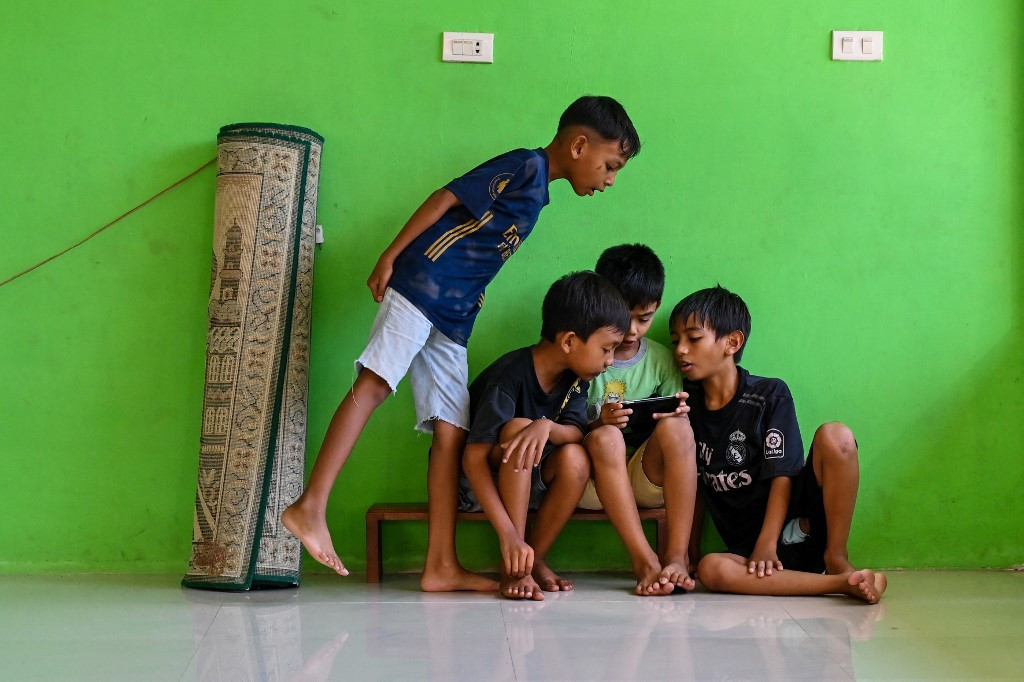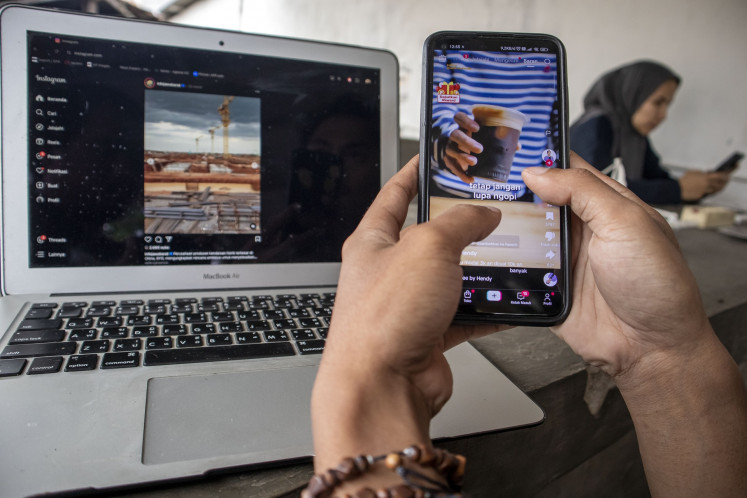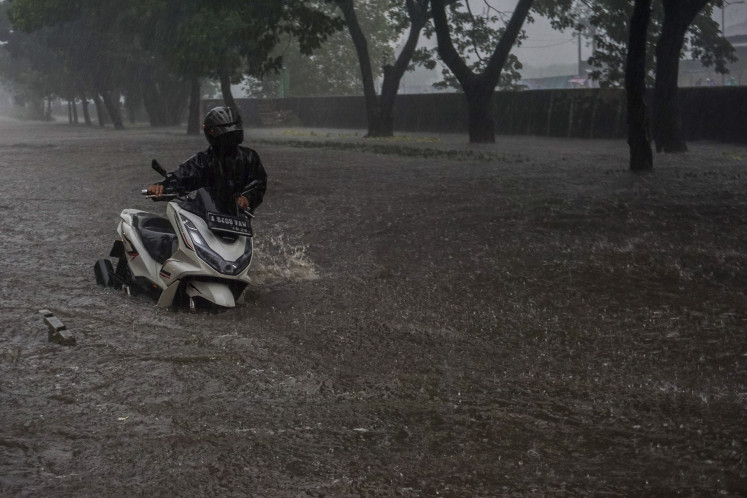Popular Reads
Top Results
Can't find what you're looking for?
View all search resultsPopular Reads
Top Results
Can't find what you're looking for?
View all search resultsIndonesian parents scramble to protect children from harmful, inappropriate online content
As their children spend more time on social media, some parents are worried that their sons and daughters will be exposed to harmful and inappropriate content, believing that the government plan to restrict user age on social media will help them protect their kids online.
Change text size
Gift Premium Articles
to Anyone
A
mid concerns of harmful content over social media and the platforms’ impact on their children’s development, some parents conveyed their support for the government’s move to introduce age restrictions on social media users.
While they have imposed several measures to try limit or avoid their children’s exposure to such content, they believe that any move from the government would help protect the minors from inappropriate content.
With limited control over what her daughter watches on a smartphone, Yessi often worries about what her 7-year-old Chloe might come across on social media or on the internet in general. She is concerned that Chloe might see things that are inappropriate for her age.
The 39-year-old mother from South Tangerang, Banten does her best to monitor her daughter’s gadget usage: always staying beside her when Chloe uses her smartphone to watch tutorial videos about her latest favorite activity: drawing. She makes sure that her daughter’s screen time does not exceed one hour every day.
"I read somewhere that if it goes beyond that, it can affect a child's behavior and emotions, which in turn impacts their development," she told The Jakarta Post on Feb. 14.
She is well aware of the abundance of inappropriate content on social media, some of which she finds may not even be suitable for adults. When opening short-form videos on Instagram or TikTok, for example, the content plays automatically, allowing users to scroll endlessly through a swarm of unpredicted footage that may show violence.
“Children don’t yet know how to filter what they see, and they are easily drawn to things that are instant,” she said.
Read also: Calls for caution on social media minimum age limit plan
Dewi, a 43-year-old mother from West Jakarta, shares Yessi’s concerns, as her youngest daughter, turning 10 this month, has her own phone to look up information for schoolwork and contact her parents. However, once her daughter starts watching YouTube videos or playing games, stopping her is difficult.
"I have to force her to take a nap after lunch so she doesn't spend too much time on her phone," Dewi said.
She also worries about the risks of unfiltered internet access prompting her to set the YouTube on her phone to YouTube Kids, so she only sees content made for children.
Another parent, Maharani, restricts her 7- and 11-year-old sons' screen time but is more lenient on weekends, when they can play games and watch videos on TikTok and YouTube. Despite the leniency, the mother still monitors the sons’ screen time.
While she allows them to have their own phones for school, Rani remains cautious: "Social media is filled with useless content, not educational for children."
Widespread support
An online survey conducted by YouGov in January found that 84 percent of 892 Indonesian parents with at least one child under 18 support raising the minimum age for social media.
Concerns cited include exposure to age-inappropriate content (81 percent), excessive screen time (74 percent), mental health impacts (70 percent) and misinformation (62 percent). Among platforms, TikTok is seen as the most concerning, followed by X. Google’s YouTube and Meta’s Instagram are considered relatively safer.
A person uses Instagram and TikTok on Jan. 31, 2025, in Cimahi, West Java. (Antara/Abdan Syakura)However, only half of respondents believe such regulations will effectively curb children's online presence.
Yessi, Dewi and Maharani said they agreed that the government should introduce measures to limit the age of social media users in Indonesia.
While Dewi said she supports banning social media for children altogether, Maharani said that the minor’s access to the platforms should be limited rather than totally restricted.
Read also: Indonesian parents welcome age restriction for social media: YouGov survey
Communications and Digital Minister Meutya Hafid recently said that her office was drafting guidelines to protect children from malicious online behavior and information such as cyberbullying, misinformation, gambling, exploitation and social media addiction.
The guidelines, expected to be completed within two months, would also include sanctions for tech companies that allow underage users access to their platforms. To prepare the regulation, the ministry has been engaging in discussions with social media companies. On Feb. 10, Meutya met with Google vice president of government affairs and public policy Leslie Miller in France.
Miller assured Google’s support for the initiative, saying that the company was “ready to cooperate with the Indonesian government” to ensure their platform is safer for all users, especially children.
Read also: Tech giants support Indonesia’s plan to restrict children from social media
Chinese tech firm ByteDance, which owns TiKTok video platform, also signaled openness to revising age restrictions and proposed a "family pairing" feature, allowing parents to monitor their children’s accounts, manage screen time and adjust privacy settings. The company’s representative met with officials from the Communications and Digital Ministry on Thursday to talk about the matter.
"User safety will always be our top priority. While regulations are being drafted, we stand ready to continue working with stakeholders and ministries," TikTok Indonesia spokesperson Anggini Setiawan said. (tha)











